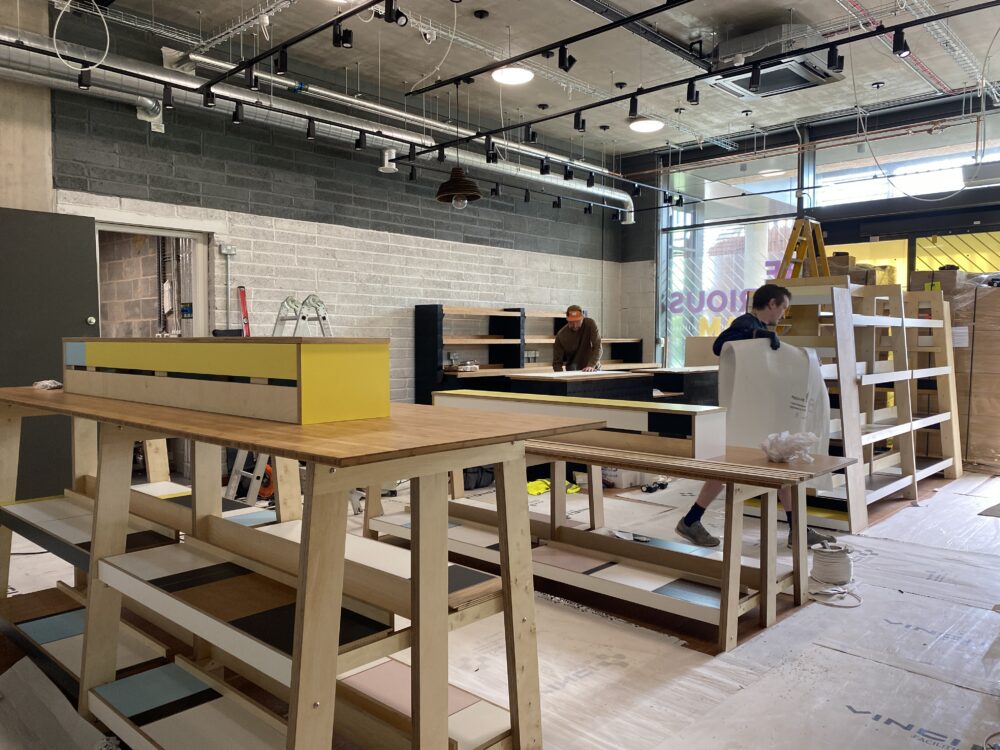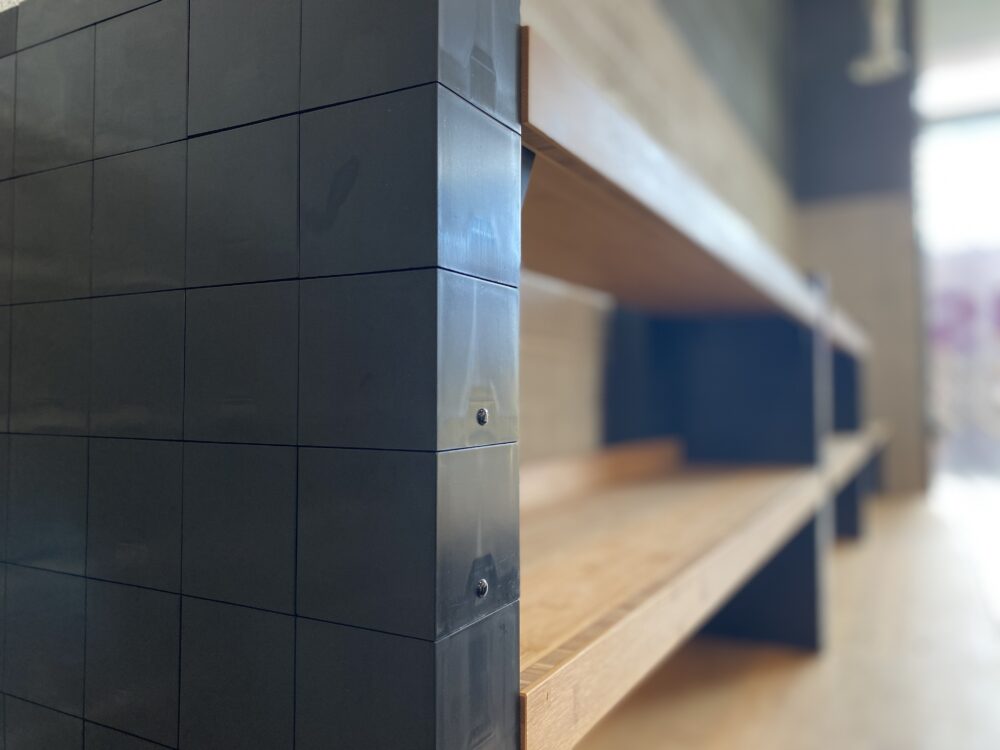Interview with Mark Butt
Mark Butt works at The University Of Winchester and contacted Engaging Interiors Limited about working on a Zero waste shop within its new complex of buildings. We put together a quotation which was approved and started working together on developing a design direction. We had already written an article about designing for the circular economy and it was this article that caught Mark’s attention. It was clear during our conversation that we were on the same page and how important it was that the shop design was not only sustainable but also adaptable and cost effective.

Zero waste shop – Interview with the client
EI – What were the environmental criteria you wanted to achieve with the fit out of the shop and how close did we get?
MB – The West Downs Centre, where the shop is located, is built to high standards of sustainability. This was partly to reflect the values of the university but also to reduce energy demand and impact on the environment. The circular economy is one way of introducing sustainability in buildings and products and as I was not aware of any other measure for shop-fitting work, this concept seemed to fit. Reusing waste products from the furniture industry to create the shelving units demonstrates a circular approach, using skilled labour over manufacturing and virgin materials. Where new materials were unavoidable, the most sustainable was selected, for example the bamboo flooring and worktops. This project easily met the aims of the university in that respect.
EI – Is there anything we could do to improve the design to make it more environmental or cost effective?
MB – Not much, I guess we could have potentially used recycled materials for all aspects but this was not practical for a shop unit.
EI – What were the main points of difference between this project and similar projects you have run?
MB – I have rarely been involved in shop-fitting work but this was the most sustainable I can think of.
EI – Do you think the principles applied the this project could be applied to future projects for the University?
MB – Reusing waste products is difficult to apply widely, however, demonstrating that shop-fit or built-in furniture can be created in a very sustainable way helps set a good example.

The above conversation discusses how the Zero waste shop performs from a sustainable point of view. We upcycled offcuts, used low impact sheet materials and a recycled block system that can be reused once finished with. These are all steps towards building interiors that are sustainable, cost effective and adaptable. Finding a way of centrally storing and using offcuts once they can be repurposed is one of the tasks that is yet to be fully resolved. The only way we achieved the upcycling of offcuts with our Zero waste shop was by giving the joinery firm enough notice gather the necessary parts. During the project the country ran short of bamboo sheet material and we had adjust our design a little to make it work. By designing in a way that makes the most out of using sheet materials in way that minimises offcuts and the amount used we can mitigate exposure to shortages in materials and supplies.